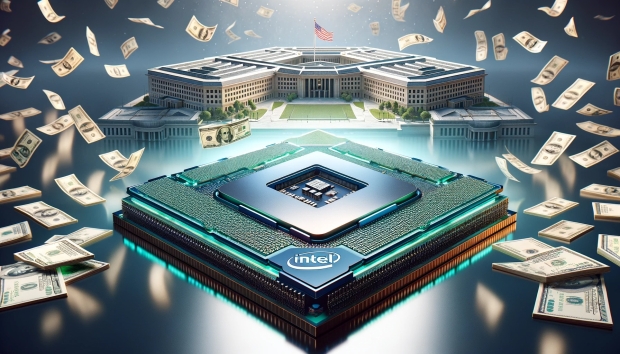The Pentagon has just pulled out of a plan to spend up to $2.5 billion on a new chip grant through the CHIPS Act to Intel, but now those billions of dollars will come directly from the Commerce Department.

In a new report from Bloomberg, the usual "people familiar with the matter" told the outlet that the Pentagon had pulled out of the billions of dollars going to Intel, which now threatens the total amount that Intel was expecting to receive through federal funding, which can have ripple effects... even though the company has a market cap of $180 billion, that $3.5 billion grant seems to be important.
Intel has been seeking around $10 billion through the CHIPS and Science Act, with defense funding to be part of that spending package that Joe Biden signed into law over the weekend. This would've seen Intel receiving $3.5 billion in funding to create advanced defense and intelligence-related semiconductors.
The Commerce Department distributes CHIPS Act grants and was previously only responsible for $1 billion of this $3.5 billion, but now that the Pentagon has pulled out, they'll have to cough up the entire $3.5 billion to Intel. The Pentagon initially promised to cover the rest, but pulled out in the days leading up to the government funding deadline, "said the people" to Bloomberg.
- Read more: Video might have killed the radio star, but Biden's DEI is killing the CHIPS Act
- Read more: US will need 'CHIPS Act 2' investment into semiconductor manufacturing
- Read more: Intel wants another $10 billion from the CHIPS Act and Biden administration
Bloomberg says that this move should see Intel using more of its CHIPS Act funding to create chips for the military, versus commercial ones, which would defeat the purpose of US tax dollars going into military-focused chips, instead of processors made in the USA through CHIPS Act grant funding.
The site reports that the defense deal establishes Intel as a dedicated supplier of chips for military and intelligence needs, designating a "Secure Enclave" within the company's factory.
A Commerce Department representative said in a statement: "The Department of Commerce looks forward to continuing to work with Congress on implementing the Chips and Science Act in a manner that promotes our economic and national security," without calling out specific companies.




